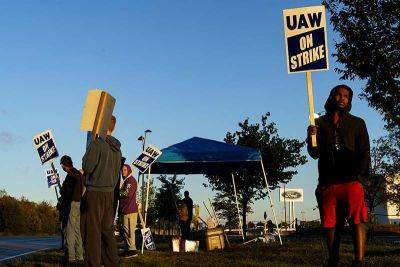Mid-term test for Scholz’s coalition at German state polls
Germans vote in two key state polls on Sunday in a test for Chancellor Olaf Scholz’s fractious coalition halfway through its term, while the resurgent far right may get another boost.
Almost 14 million people are eligible to cast ballots on Sunday in southern Bavaria, the country’s biggest state, and western Hesse, with a surge in immigration and economic woes among key topics.
With the voter base making up almost one in five of Germany’s electorate, and both states qualifying as economic heavyweights among the country’s 16 regions, the polls are seen as a crucial indicator of the population’s mood.
After forming a three-party coalition two years ago, Scholz soon had to contend with Russia’s invasion of Ukraine and the ensuing energy crisis, which plunged Germany into recession.
Adding to its problems, the chancellor’s coalition — comprising his centre-left SPD, the Greens and the pro-business FDP — has been consumed by bitter infighting on issues ranging from climate laws to spending cuts.
“The parties that form the federal government are in a bad starting position here,” Arndt Leininger, a political expert from the Chemnitz University of Technology, told AFP.
“In both states, all three parties are currently below their results in the last regional elections.”
Not helping the cause of the SPD and its coalition partners, both states are conservative strongholds, with Hesse ruled for 24 years by the main opposition CDU and Bavaria since 1957 by the CSU, headed by Markus Soeder.
Meanwhile the far-right Alternative for Germany (AfD) is forecast to make gains after a recent surge in poll ratings at the national level and a string of local election triumphs.
While the AfD is not expected to enter government in either state — its strongholds are in eastern Germany — further progress would ring alarm bells anew about the party’s growing popularity.
The AfD is traditionally an anti-immigration party but has also focused on attacking the coalition’s climate policies, driven by the Greens, which have proven unpopular in some quarters. Critics say they could unduly burden households.
The issue of immigration has emerged as a central theme at the elections as Germany — like







